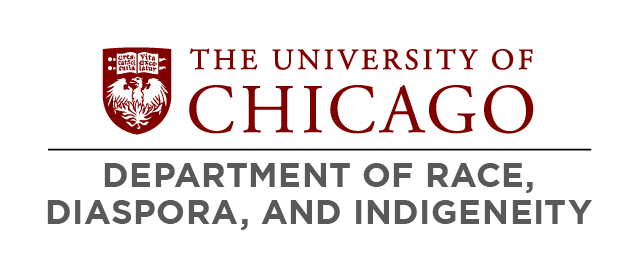RDI Major
The Department of Race, Diaspora, and Indigeneity (RDI) gives students space to explore three concepts that have shaped the modern world and continue to reverberate in contemporary thought, action, culture, and policy: race, a social construction that defines difference and shapes relations among people; diaspora, formed through processes of migration and practices of collective meaning-making; and indigeneity, which refers to the categorization and self-identity of people dwelling on a given territory that has been subjected, often violently, to occupation or settlement.
We are also shaped by our commitment to studying these concepts in a way that understands community engagement, interdisciplinary inquiry (particularly in the arts and the humanities), and opportunities to collaborate beyond the traditional walls of the university; the idea that learning occurs in many places, in many ways, and drawing upon many sources of wisdom is central to our culture as a department.
Majoring in RDI requires 13 courses. A BA Thesis or Project is optional:
- 3 courses on critical concepts, including Indigeneity, Diaspora, and Racial Formations. These can be taken in any order.
- 4 foundational courses (1 in each of the following areas: Theories, Practices, Structures, and Cultures)
- 4 RDI electives
- 2 courses related to the thesis/capstone project.
Students will have the option of combining RDI with any major or minor in any division or school of the University.
Critical Concepts Courses:
These introductory courses are meant to introduce students to the central texts and key debates that inform the study of race, diaspora, and indigeneity.
- Indigeneity: In this course, students consider Indigenous conceptions of peoplehood and the processes of settler colonialism as well as other forms of social formation. Taking a comparative and transnational approach, students will examine the triad of indigeneity, land, and sovereignty as they are refracted through specific political and cultural settings.
- Diaspora: This course introduces students to the concept of diaspora understood simultaneously as global processes of migration and dispersal and as political and cultural practices of meaning-making. Students will think through the distinctive and overlapping experiences of various diasporic communities.
- Racial Formations: The course introduces students to the idea of the social construction of race as a dynamic process, considering questions such as: what are the racial boundaries that shape our lives? Where did they come from, how have they changed over time, and how are they continuing to evolve? Whose interests do they serve? How have racial constructions been both contested and mobilized by those racialized?
Foundational Courses:
The Foundational courses are designed to expand student knowledge in the field of RDI and its diverse methodologies. These are not set courses; rather, various courses offered by diverse faculty in various years will count as Foundational Courses in the following categories:
- Theories: These will include courses on concepts that deepen the training offered in the Critical Concepts course by highlighting specific intellectual traditions (such as Black Feminist Thought or Caribbean Studies) or taking up more specific conceptual anchors (such as intersectionality or decolonization).
- Practices: These are courses that explore the ways that human beings perform or construct race, diaspora, and indigeneity through social practices (e.g. colonial empires, slavery and its afterlives, migration, anti-imperialist movements, etc.).
- Structures: These courses will focus on institutions and practices of domination and resistance (e.g. comparative colonialisms, legal constructs and social dynamics of segregation; apartheid, science and technology).
- Aesthetics & Expressive Cultures: These courses explore the ways that literary, visual, sonic, and other expressive cultures reshape and resignify our race, diaspora, and indigeneity. Students will also develop analyses attuned to form, genre, circulation and reception of aesthetic materials.
Electives:
RDI does not have content area “tracks” focused on specific subfields of study, but students are encouraged to use electives to form a deeper intellectual commitment to a particular topic or area that may interest them, or to explore a diverse array of interests within the department, as they prefer.
Courses in the Race and Racial Ideologies social sciences core sequence or the Colonizations civilization sequence may count as elective courses if they were not already used to fulfill Core requirements.
BA Thesis or Capstone Project:
Students majoring in RDI may, if they wish, write a BA thesis or complete a capstone project. Students who choose to do so are eligible for departmental honors, though completing a thesis or project does not guarantee honors.
The BA thesis enables students to apply theoretical or empirical concepts gleaned from their coursework and conduct independent inquiry toward the development of original, critical research on a topic of their choice.
The capstone project offers a chance to apply ideas and skills developed in the major to a variety of settings and media, such as a conference or symposium, an internship, a performance, art installation, a podcast or film, among many options. This project can be carried out individually or in collaboration with other graduating students.
 THE UNIVERSITY OF CHICAGO
THE UNIVERSITY OF CHICAGO

